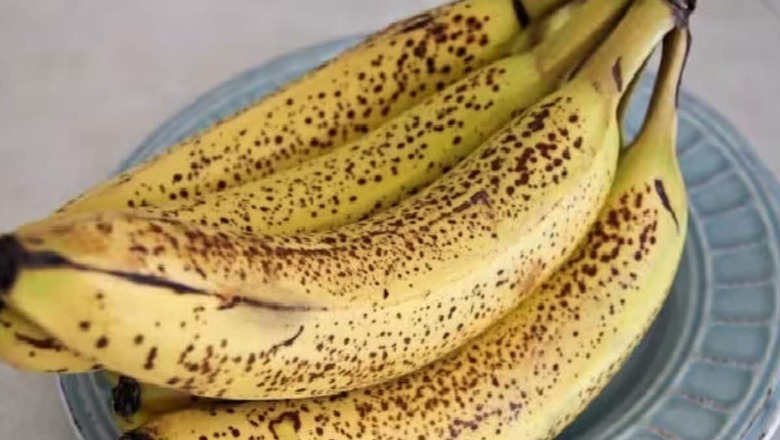
views
Bananas, the beloved fruit that occupies a prominent place in our daily diets, offer a plethora of health benefits. From providing essential nutrients to boosting energy levels, bananas are a convenient and delicious snack option. However, the presence of black spots on the peel often raises questions about their edibility. Let’s delve into the science behind those dark spots and explore whether you should embrace the ripeness and enjoy the health benefits they bring.
Bananas undergo a natural ripening process that transforms their appearance and taste. As a banana ripens, it typically starts as a vibrant yellow. Over time, the appearance changes with the emergence of brown or black spots on the yellow skin, a result of heightened ethylene production in the fruit. This natural transformation is known as enzymatic browning.
Contrary to popular belief, the appearance of black spots on bananas is not an indicator of spoilage. It signifies elevated levels of tumour necrosis factor (TNF), a substance renowned for its cancer-fighting properties. This TNF collaborates with antioxidants to enhance immunity and stimulate white blood cell production. Scientific studies suggest that bananas with black spots may play a role in preventing certain types of cancer.
Bananas, especially those with black spots, are rich in essential nutrients such as vitamin A, vitamin B6, vitamin C, magnesium, calcium, potassium, and fibre. Apart from their cancer-fighting capabilities, bananas featuring black spots not only boast low sodium content but also play a role in regulating blood pressure. Their benefits extend to strengthening bones, preventing anaemia, alleviating mood swings, and providing a quick boost of energy.
The slightly sweeter taste of spotted bananas is attributed to the presence of polyphenol oxidase, an enzyme responsible for the development of dark spots.
Bananas with black spots are safe for consumption and do not pose any health risks. However, exercise caution if a banana with dark spots emits a bad odour. In such cases, it is advisable to steer clear and opt for a fresher alternative. Trust your senses when it comes to ensuring the quality of this nutritious fruit.
However, individuals with diabetes should be mindful of overripe bananas. As bananas become overripe, starch content is converted into sugar, potentially increasing the likelihood of raising blood sugar levels. Diabetics are advised to moderate their intake of overripe bananas to avoid unwanted spikes in blood sugar.




















Comments
0 comment